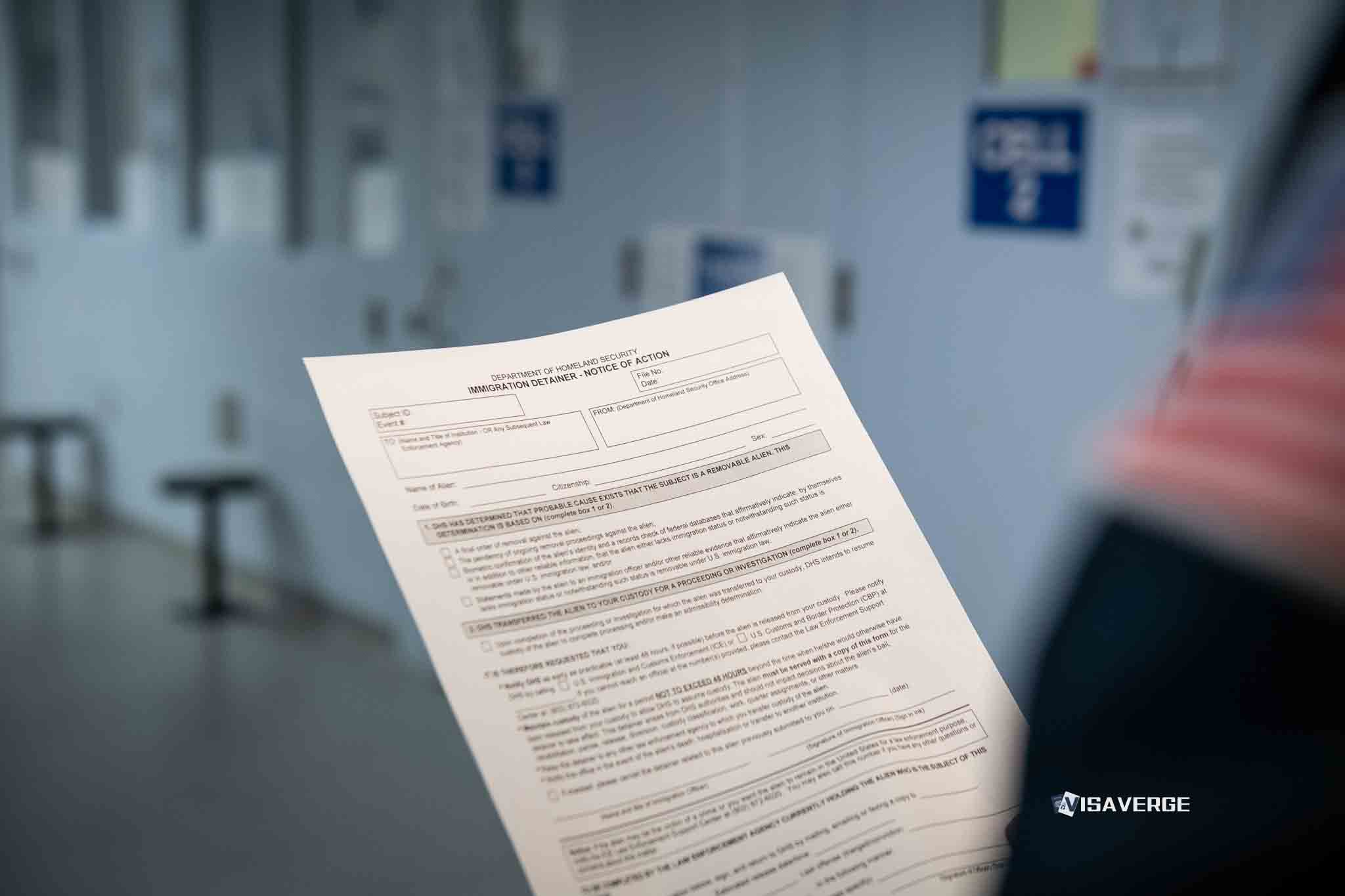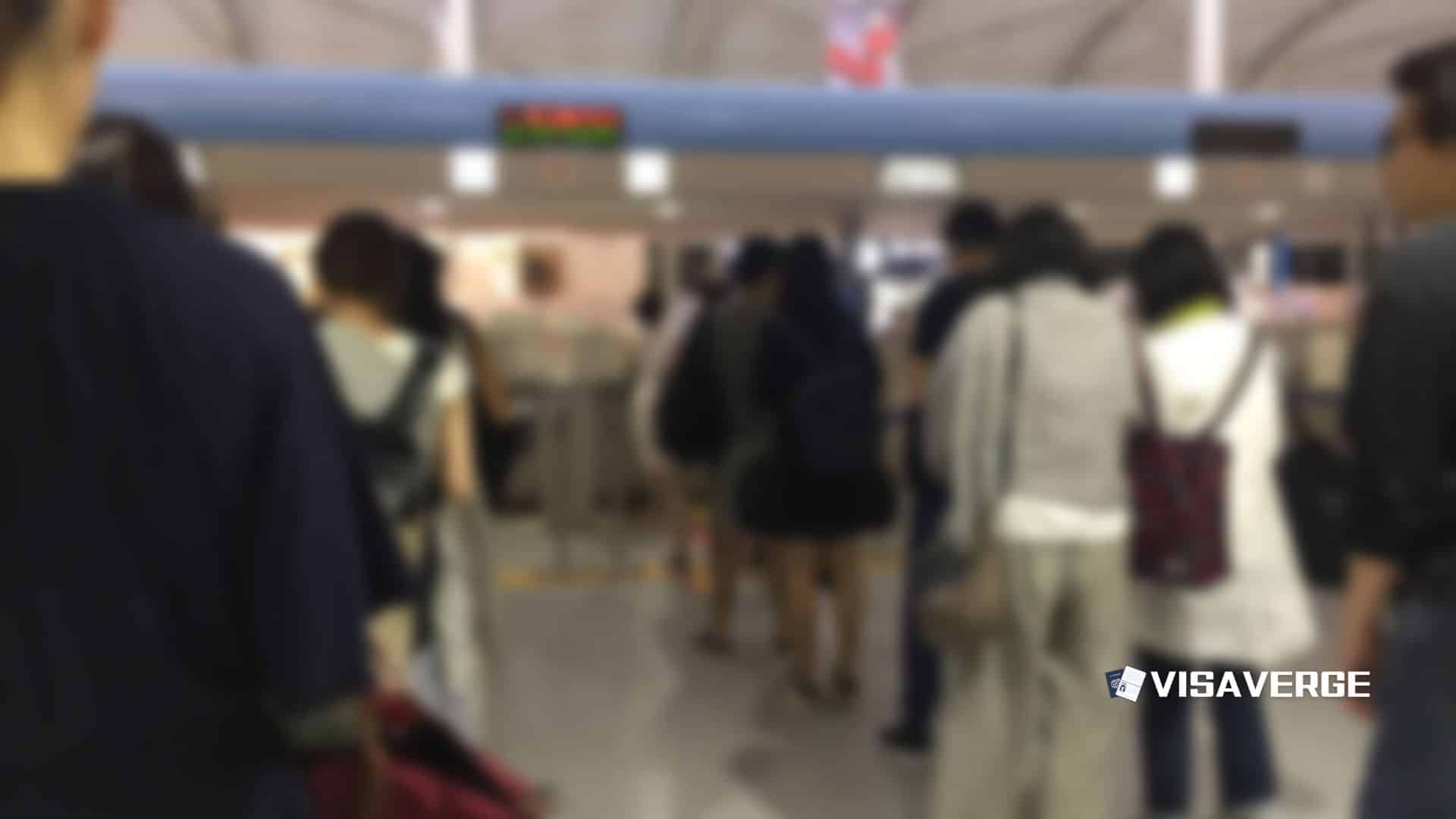Hundreds of thousands of immigrants in the United States 🇺🇸 face an uncertain future as legal battles over Temporary Protected Status (TPS) intensify, while the Gaza humanitarian crisis drives urgent calls for action from U.S. lawmakers and advocacy groups. As of August 2025, courts have temporarily blocked the government’s attempts to end TPS for several nationalities, but the situation remains unstable for many families. At the same time, the worsening crisis in Gaza has led to widespread displacement and starvation, prompting demands for a ceasefire and open humanitarian aid corridors.
Legal Challenges to TPS Termination in the United States 🇺🇸

Temporary Protected Status, or TPS, is a special immigration status that lets people from certain countries live and work legally in the United States 🇺🇸 when their home countries are unsafe due to war, natural disasters, or other serious problems. TPS protects people from being deported and allows them to support their families while their home countries recover.
In early 2025, the U.S. government, led by Secretary of Homeland Security Kristi Noem, announced plans to end TPS protections for several groups, including Venezuelans, Hondurans, Nepalis, Nicaraguans, and Haitians. This decision sparked immediate backlash from immigrant advocates and TPS holders, who argued that ending these protections would cause severe harm to families and communities.
On February 19, 2025, the National TPS Alliance and individual TPS holders from Venezuela filed a lawsuit, National TPS Alliance v. Noem, to stop the government from ending TPS for Venezuelans and other groups. The plaintiffs said the government’s actions were unfair, illegal, and motivated by discrimination. They also warned that ending TPS would separate families, cause economic problems, and force people to return to dangerous situations.
On March 31, 2025, Judge Chen, a federal judge, agreed with the plaintiffs and temporarily blocked the government from ending TPS for Venezuelans. Judge Chen said that ending TPS would cause “irreparable harm” to hundreds of thousands of people and could damage the U.S. economy. The judge also found that the government’s actions might be illegal and based on unconstitutional bias.
The government quickly appealed the decision and asked higher courts to let them end TPS while the case continued. However, as of late July 2025, courts have denied these requests, so the injunction remains in place. This means that, for now, Venezuelan TPS holders can stay and work in the United States 🇺🇸 while the lawsuit moves forward.
Other Lawsuits Over TPS Termination
Lawsuit filed by National TPS Alliance and Venezuelan TPS holders
Judge Chen blocks government from ending TPS for Venezuelans
Secretary Noem announces end of TPS for Haiti
Federal court blocks termination of TPS for Haiti
Potential loss of TPS status for Honduras, Nepal, and Nicaragua TPS holders
The fight over TPS is not limited to Venezuelans. In mid-2025, TPS holders from Honduras, Nepal, and Nicaragua filed their own lawsuits challenging the Trump administration’s decision to end their TPS designations. These lawsuits claim that the government acted with racial bias and failed to provide a fair and orderly transition period, which is usually at least six months for people who have lived in the United States 🇺🇸 for a long time.
Many of these TPS holders have lived in the United States 🇺🇸 for years, built families, and have U.S. citizen children. If the government ends TPS without giving them enough time to prepare, they could lose their legal status and work permits as soon as August 5, 2025. This would put them at risk of deportation and separate them from their families.
The plaintiffs in these cases stress the humanitarian impact of ending TPS. They argue that many TPS holders cannot safely return to their home countries because of ongoing violence, disasters, or political instability. Losing TPS would not only hurt these individuals but also disrupt their families, employers, and communities.
TPS for Haiti: A Special Case
Haiti’s TPS designation has also been at the center of legal battles. On July 1, 2025, Secretary Noem announced that TPS for Haiti would end on August 3, 2025. However, on July 15, 2025, a federal court blocked this termination in the case Haitian Evangelical Clergy Ass’n v. Trump. The court ruled that TPS for Haiti cannot end before February 3, 2026, giving Haitian TPS holders more time to stay legally in the United States 🇺🇸.
Despite the court’s ruling, U.S. Citizenship and Immigration Services (USCIS) disagrees and plans to appeal. This means the legal status of Haitian TPS holders is still uncertain, and they must keep watching for updates as the case continues.
Practical Effects and Stakeholders
The ongoing legal battles over TPS have left hundreds of thousands of people in limbo. If the courts eventually allow the government to end TPS, many immigrants could lose their right to live and work in the United States 🇺🇸. This would lead to:
- Family separations: Many TPS holders have children who are U.S. citizens. Ending TPS could split families apart.
- Economic disruption: TPS holders work in many industries, including healthcare, construction, and hospitality. Losing their workforce could hurt local economies.
- Humanitarian harm: Returning people to unsafe countries could put their lives at risk.
Key groups involved in these lawsuits include the National TPS Alliance, the ACLU Foundation of Northern California, and the UCLA Center for Immigration Law & Policy. The main government official named in the lawsuits is Secretary Kristi Noem. The cases are being heard in U.S. District Courts in California and New York, with appeals going to the Ninth Circuit Court of Appeals.
For the latest updates on TPS, readers can visit the official USCIS Temporary Protected Status page.
Gaza Humanitarian Crisis: Calls for Action in the U.S. and Abroad
While legal battles over TPS continue in the United States 🇺🇸, the humanitarian crisis in Gaza has reached a critical point in 2025. Nearly every person in Gaza now needs urgent help, and about 1.9 million Palestinians have been forced to leave their homes. The crisis has been made worse by the Israeli government’s blockade and strict controls on aid deliveries, which have led to starvation, a lack of medical supplies, and the destruction of homes and hospitals.
Humanitarian groups like the International Rescue Committee (IRC) report that Israeli restrictions on aid entry points, along with dangerous conditions on the ground, have made it nearly impossible to deliver enough food, water, and medicine. Some civilians have even died while trying to get aid. The IRC’s president, David Miliband, and other experts say that the only way to help people in Gaza is to open all land crossings fully and without restrictions, so that large amounts of aid can get through quickly.
A ceasefire is also seen as essential. Without a stop to the fighting, it is too dangerous for aid workers to reach those in need, and civilians remain at risk. Humanitarian experts warn that small or symbolic aid efforts, like airdrops, are not enough and are very expensive. They say only full, regular access and a ceasefire can prevent more deaths and suffering.
U.S. Political and Advocacy Responses
The crisis in Gaza has drawn strong reactions from U.S. lawmakers and advocacy groups. On August 2, 2025, Congressman Jared Huffman spoke out against the humanitarian disaster, urging both the Israeli government and the United States 🇺🇸 to do more to end the suffering. He called for Israel to stop blocking aid deliveries and to open all possible channels—by land, sea, and air—for humanitarian relief.
Faith-based and humanitarian coalitions, such as Church World Service and Churches for Middle East Peace, have also called on U.S. officials to demand an immediate ceasefire and allow unimpeded aid access to Gaza. They warn that without quick action, famine and more deaths are likely.
Quantitative Data and Impact
- 1.9 million Palestinians displaced from their homes.
- Widespread starvation and destruction of civilian infrastructure.
- Aid deliveries are insufficient and dangerous under current policies.
These numbers show the scale of the crisis and the urgent need for a solution. Civilians in Gaza face hunger, lack of medical care, and the constant threat of violence. Humanitarian organizations are struggling to operate safely and effectively.
Expert Analysis and Solutions
Experts agree that the current situation cannot be fixed with small or temporary measures. They recommend:
- Opening all land crossings at scale and without restrictions to allow consistent, large-scale aid delivery.
- Establishing a ceasefire to create safe humanitarian corridors and allow the return of hostages.
- International pressure on all parties to respect humanitarian law and protect civilians.
These steps are seen as the only way to prevent further catastrophe and save lives.
How to Help and Stay Informed
People who want to help or stay informed about the Gaza humanitarian crisis can visit the International Rescue Committee’s crisis page or take action through Church World Service.
Summary Table: Key Dates and Status (as of August 2, 2025)
| Issue | Key Dates & Status |
|---|---|
| TPS for Venezuelans | Lawsuit filed Feb 19, 2025; injunction blocking termination granted Mar 31, 2025; ongoing litigation with appeals pending |
| TPS for Honduras, Nepal, Nicaragua | Termination challenged; TPS holders face loss of status by Aug 5, 2025; court injunctions pending |
| TPS for Haiti | Termination notice July 1, 2025; scheduled expiration Aug 3, 2025; court blocked termination until at least Feb 3, 2026 |
| Gaza Humanitarian Crisis | Ongoing crisis in 2025; calls for ceasefire and aid access intensified in July-Aug 2025; Congressional statements Aug 2, 2025 |
What’s Next for TPS Holders and Gaza?
For TPS holders in the United States 🇺🇸, the future depends on the outcome of ongoing lawsuits. Courts have so far sided with immigrants, blocking the government from ending TPS for some groups. However, the legal fight is not over, and TPS holders should keep checking official sources for updates. Those affected can find more information and resources on the USCIS Temporary Protected Status page.
For people in Gaza, the humanitarian crisis continues. International and U.S. leaders are calling for a ceasefire and open aid corridors, but real change will require strong political action and cooperation from all sides.
Actionable Takeaways
- TPS holders should stay informed about court decisions and check USCIS for updates on their status.
- Families and employers of TPS holders should prepare for possible changes and support advocacy efforts.
- Concerned citizens can contact their representatives to urge support for humanitarian aid and a ceasefire in Gaza.
- Humanitarian groups need donations and volunteers to continue their work in crisis areas.
As reported by VisaVerge.com, the coming months will be critical for both TPS holders in the United States 🇺🇸 and civilians in Gaza. Legal and humanitarian solutions are urgently needed to protect lives and keep families together. Staying informed and taking action can make a real difference for those affected by these ongoing crises.
This Article in a Nutshell













